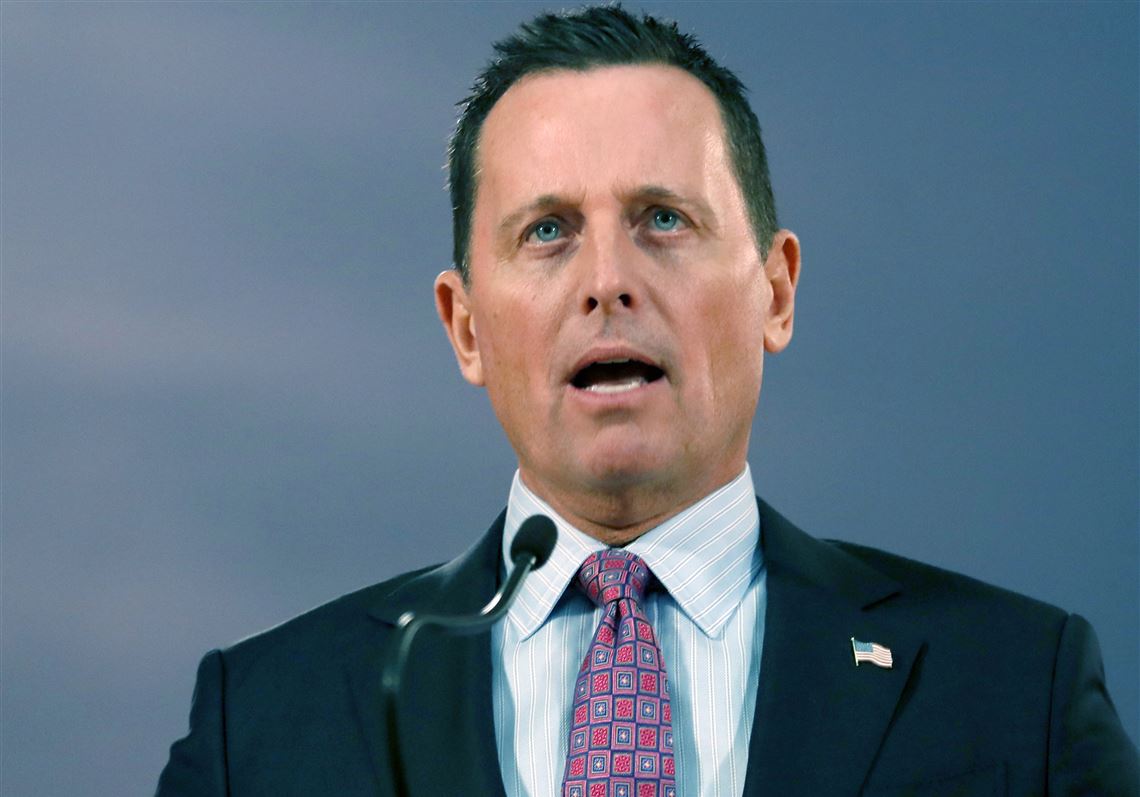About 200 Carnegie Mellon University faculty and staff have joined calls for the university to withdraw its selection of former Ambassador Richard Grenell as senior fellow, citing “damage that this appointment does to CMU’s academic integrity.”
In an open letter to President Farnam Jahanian and his administration, the signers at Carnegie Mellon take issue with what they say is Mr. Grenell’s “history of ties to extremist, xenophobic groups” and “record of sexism and support for racist political movements ....”
They object to the way he was appointed to CMU’s Institute of Politics and Strategy by its director, Kiron Skinner, and they reject the provost’s assertion that it was Ms. Skinner’s right to do so under academic freedom.
Mr. Grenell could not immediately be reached for comment.
Asked Monday when the last time an appointment at Carnegie Mellon drew faculty and staff pushback, spokesman Jason Maderer did not immediately respond.
Since the one-year CMU appointment was announced earlier this month, university officials and other individuals have said Mr. Grenell will bring “a unique understanding” of international relations and the new Europe and would broaden the perspective of students and faculty.
Mr. Grenell has served as a civil servant and diplomat during the administrations of George W. Bush and Donald Trump.
Most recently, he was acting director of national intelligence this year, after being appointed in 2018 as U.S. ambassador to Germany. He also served eight years as U.S. spokesman at the United Nations, and he has been a political commentator.
The letter opposing his CMU appointment, which was first circulated Friday, has signers from campus schools including Dietrich College, Computer Science, Tepper business, College of Science, College of Fine Arts, College of Engineering, University Libraries and other units. About three-quarters are faculty members.
CMU Provost James Garrett Jr. has characterized the appointment as a matter of academic freedom and said Ms. Skinner’s appointment exemplified it.
The letter writers contest that, citing definitions that describe academic freedom as involving “personal teaching and research. It does traditionally include speakers invited to campus, but it does not include appointing faculty, special or otherwise,” the letter states.
Mr. Garrett and Ms. Skinner have both described the appointment as beneficial to the university and its students by offering a broad view of global affairs.
“Ambassador Ric Grenell’s role as acting director of the Office of National Intelligence has given him a unique understanding of the complexities facing the intelligence community and how to address them,” said Ms. Skinner, also a professor of international relations and politics, in a statement last week.
She noted that he was the nation’s first openly gay member of a president’s cabinet, a political conservative and a Christian.
Mr. Grenell will not teach classes, she added, “but will engage with the CMU community in a variety of forums designed to increase our understanding of the new Europe, international relations more broadly, and the U.S.-led diplomatic effort to decriminalize homosexuality throughout the world.”
First Published: June 23, 2020, 9:14 a.m.


















